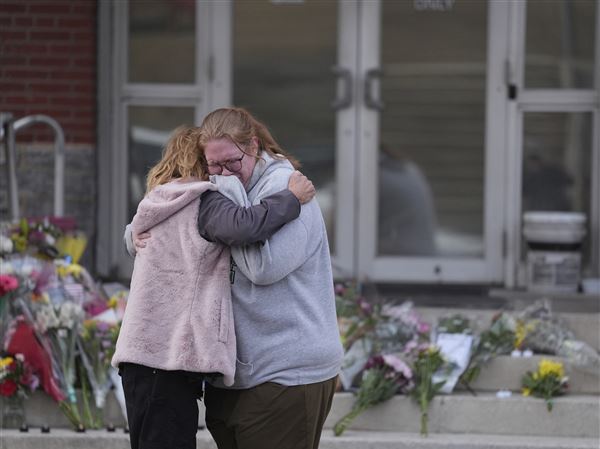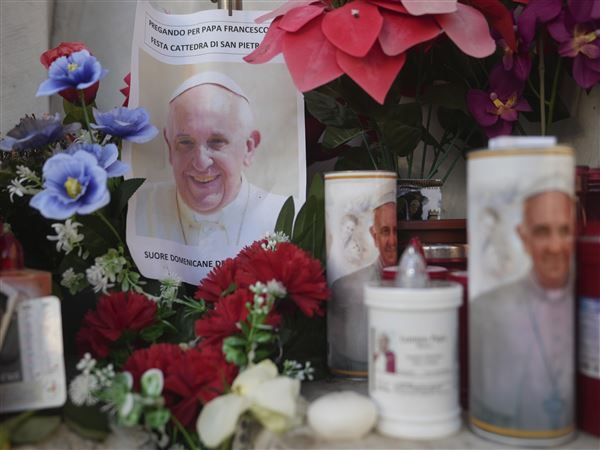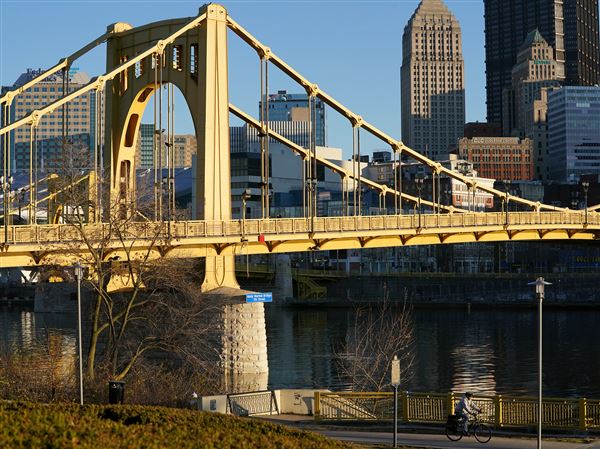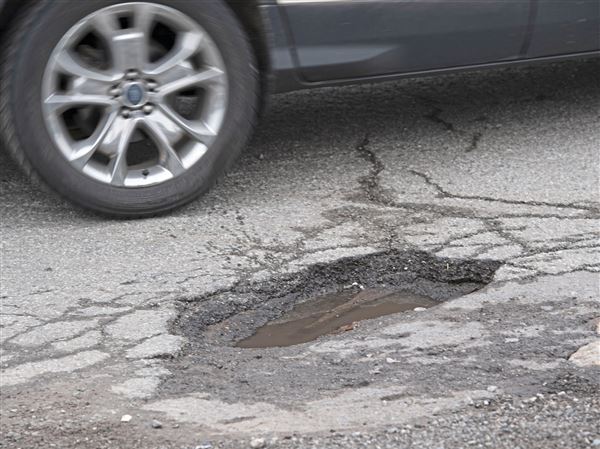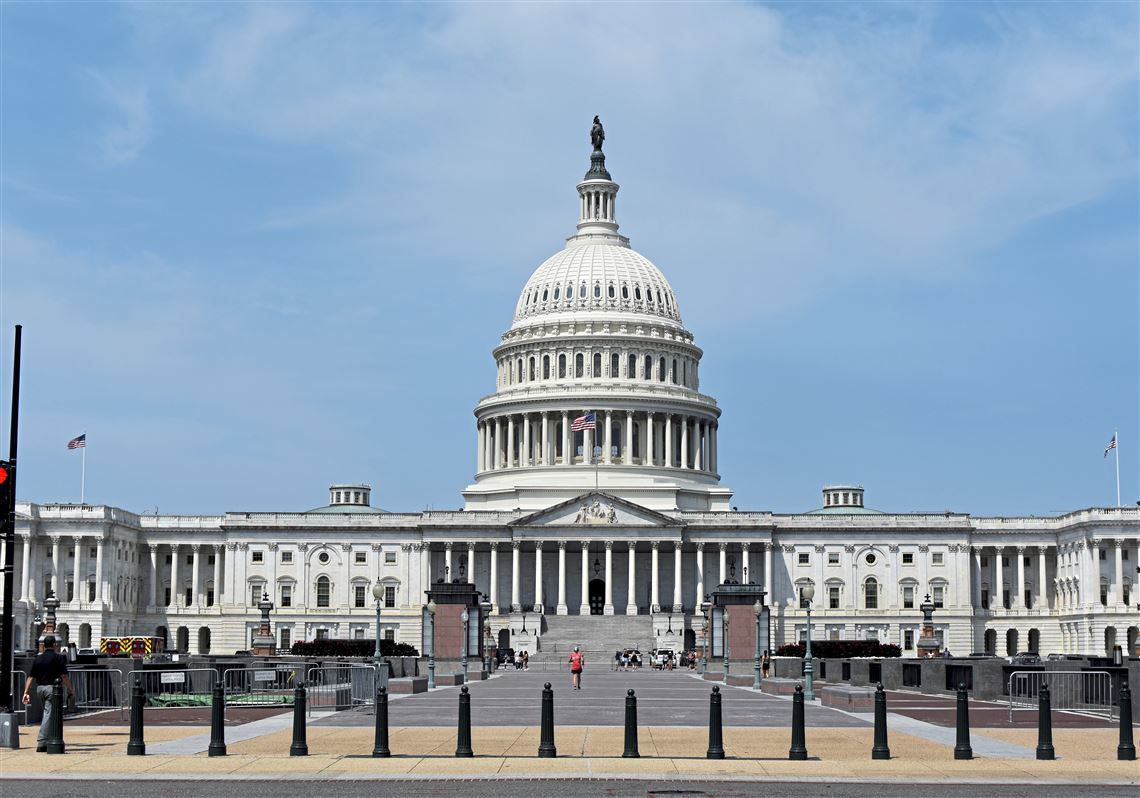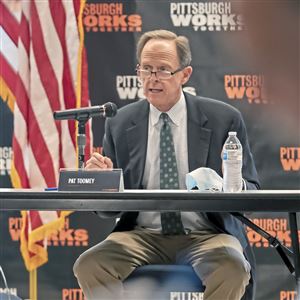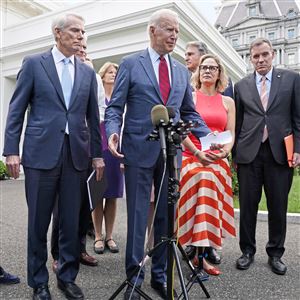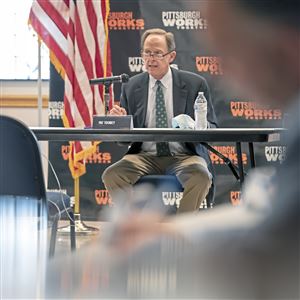WASHINGTON — Hours after a bipartisan group of lawmakers clinched a major deal to spend almost $1 trillion over five years on the country’s infrastructure, momentum built in the U.S. Senate on Thursday as staffers scrambled to draft bill text to bring to the Senate floor in the coming days.
While lawmakers and reporters alike absorbed the full scope of the plan, the passage of a once-in-a-generation federal infrastructure deal in the Senate appeared all but certain.
“We’re going to have strong support for this bill,” U.S. Sen. Bob Casey, D-Pa., said in an interview Thursday. He said he planned to support the measure, as “it deals with some of the challenges we’ve been confronting as a nation for a long time: a lack of investment in basic physical infrastructure.”
The plan, as described in summaries circulated by the White House and by Senate Republicans, calls for $550 billion in new spending over five years. The rest of the plan — some $400 billion over five years — would be baseline spending that Congress already authorized but would require periodic congressional approval.
Money would be ploughed into roads and bridges, broadband expansion, public transit, passenger and freight rail, drinking water systems, airports and other programs.
Democrats saw wins in provisions like the $7.5 billion to build electric vehicle charging stations along highway corridors and with a focus on rural, disadvantaged and hard-to-reach communities.
Republicans succeeded in limiting the increase of funding to public transit when compared to highway spending, which they kept at more than 80% of the Highway Trust Fund.
The contents of the plan are widely popular, with multiple public opinion surveys showing that 80% to 90% of Americans supporting physical infrastructure repairs. But lawmakers had been locked in a dispute about what counts as infrastructure and how to pay for it.
The plan, brokered by a group led by Sen. Rob Portman, R-Ohio, and Sen. Kyrsten Sinema, D-Ariz., listed 14 new revenue sources — a grab-bag of ideas to move existing funds around or create new streams of money, most of them accompanied by scores by the Congressional Budget Office.
It proposes repurposing $205 billion in unspent COVID-19 relief money and $53 billion from some states returning unspent unemployment funds, according to a 57-page summary circulated to senators and obtained by the Post-Gazette.
About $67 billion would come from proceeds from a February 2021 government auction of radio frequencies, $49 billion from reversing a Trump-era pharmaceutical rebate, $28 billion from tax enforcement of cryptocurrency transactions and $13 billion from reinstating fees on chemical companies cleaning up polluted sites.
Dollars are scraped from extending U.S. Customs and Border Protection user fees, sales of the Strategic Petroleum Reserve and reducing Medicare spending on discarded medications. Another $56 billion comes from an assumed 33% return on investment as a result of the projects.
Maya MacGuineas, president of the Committee for a Responsible Federal Budget, said in a statement that much of the deal “relies on several phony offsets that will save little or no money.”
“At this point, it feels like bipartisanship is only possible when it is coupled with enlarging the debt,” said Ms. MacGuineas, whose group advocates for a balanced budget. “Between income tax revenue, user fees, and spending reforms, there are plenty of offsets available.”
Assembled together, Mr. Portman told reporters, the package will be “more than paid for.”
Enough Republicans sided with Mr. Portman to advance to debate on the bill. Wednesday’s vote to open debate passed by a 67 to 33 margin. Senate rules require at least 60 votes to pass legislation.
U.S. Sen. Pat Toomey, R-Pa., Wednesday voted against opening debate on the bill. Mr. Toomey, who was part of a separate group of GOP senators who unsuccessfully tried to reach a deal with the White House in May, said in a statement he needed to see bill text before he would move forward on a plan.
“While a great deal of work has been done by my colleagues to reach this stage, there remains no text whatsoever,” Mr. Toomey stated. “I still have many questions about the spending and how it would be paid for.”
Mr. Toomey did not comment on the bill Thursday.
Mr. Casey said he was eager to pass the bipartisan plan to get to a second piece of legislation that Democrats hope to advance unilaterally. That plan, expected to total $3.5 trillion, includes “human” infrastructure provisions such as free community college, an expanded child tax credit, home health care and other services.
That requires some give and take, he said.
For example, Democrats largely opposed using already allocated COVID-19 funds and enhanced unemployment benefits to pay for the package.
With the surging delta variant threatening U.S. economic recovery, Mr. Casey said, it was possible “we’ll have to revisit some of those issues if this variant leads to a circumstance where you have unemployment once again skyrocketing.”
“That’s an example of a thing that I may not like or I may not fully embrace, but sometimes you have to take things you don’t agree with with the larger enterprise,” Mr. Casey said. “You have to take the good with the bad.”
“Most of that disagreement that some might have with the final product,” Mr. Casey said, “will not prevent Democrats from moving forward.” Even if one or two Democrats balk, he said, the wide Republican support would push it over the finish line.
In Pennsylvania, the bipartisan bill will aim to fix 3,300 structurally deficient bridges, deploy broadband to every person, upgrade wastewater and clean drinking water systems — all fixes that “Pennsylvanians have been waiting for for literally 50 years, if not longer,” Mr. Casey said.
A rocky road
Congress faces a complicated path forward, however.
The second, Democrats-only measure that Mr. Casey supports requires all 50 senators who caucus with Democrats to vote on a budget resolution. The resolution would effectively skirt the Senate requirement that 60 votes are needed to end the filibuster.
Ms. Sinema, the moderate Arizona Democrat, has staunchly defended the filibuster rule over rising pressure from progressives to eliminate the legislative hurdle.
And Ms. Sinema said Wednesday she did not support the $3.5 trillion price tag on the Democrats-only budget resolution, potentially sinking some Democratic priorities in that bill.
Ms. Sinema’s comments spurred Pennsylvania Lt. Governor John Fetterman, who is running in the Democratic primary for Mr. Toomey’s Senate seat in 2022, to release a statement urging her to vote with her party.
“In unprecedented times like these, Democrats need to vote like Democrats,” Mr. Fetterman stated. “We have the majority, we have the presidency, we have the House, we have the Senate — so let’s act like it and finally deliver Biden’s agenda to the American people.”
Ms. Sinema, likewise, earned public praise from Republican quarters.
Sen. Thom Tillis, R-N.C., credited her with closing the bipartisan infrastructure deal in an op-ed published by an NBC News.
“It’s rare to have an elected official from one party publicly praising another from the opposite party, but I’m doing just that because it’s so essential for the future of our nation that Sinema holds fast in keeping the filibuster intact,” Mr. Tillis wrote in an on Wednesday.
“If Democrats had eliminated the filibuster, there would have been no attempt to find common ground on infrastructure or other critical issues,” Mr. Tillis wrote.
On Thursday, Senate Majority Leader Charles Schumer, D-N.Y., sought to ease his party’s fears in the Senate floor speech: Democrats were “on track,” he said, to pass both measures before leaving Washington next Friday for a five-week recess.
Mr. Casey said Thursday the Senate was expected to work through this weekend and vote on the bipartisan plan early next week.
“That’s a lot of work to do in 10 days or so — or however long it takes — but that’s what we’re going to be doing,” Mr. Casey said.
Daniel Moore: dmoore@post-gazette.com, Twitter @PGdanielmoore
First Published: July 29, 2021, 10:03 p.m.
